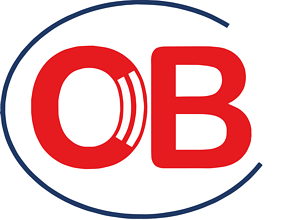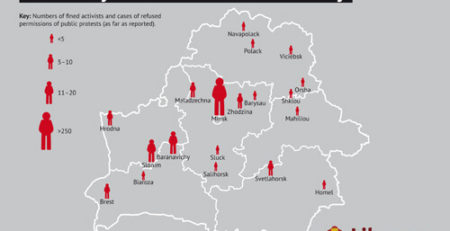Belarusian citizens are not ready for reforms
In recent months Belarus has experienced a wide range of internal political and economic changes. In addition, a number of reforms and constitutional amendments still await the country in the future. What will be the impact of these changes on Belarusian politics and society? In the first part of our long conversation, we discussed these and other topics with a leading analyst of the Belarusian Institute for Strategic Studies, Dzianis Melyantsou.
There are a lot of question marks around the reforms
In your opinion, which reforms are now the most important for Belarus? Which areas should be reformed first?
This question may be answered from several points of view. Firstly, there are recommendations of the IMF, which Belarus would like to obtain a loan from. Several IMF delegations have already visited Belarus. Belarusian ministries and the National Bank have long known what they need to do. Generally speaking, there is a need for structural changes in the economy, such as the privatization of large enterprises, which are a heavy burden for the Belarusian budget, and a reduction of state subsidies, in other words reduction of social support. A decrease in state subsidies for energy and municipal services is also needed. All of these have to be reformed in order to receive support from the IMF program. Several years ago there also was a recommendation from the IMF regarding the macroeconomic stabilization related to the exchange rate of the Belarusian ruble, for it to become more free market-oriented and balanced. In principle, the Ministry of Finance and the National Bank has fulfilled these recommendations. Macro-financial stability has been achieved. The international financial structures are praising Belarus for this. Nowadays the National Bank and Ministry of Finance function as normal western liberal institutions. Often they come into conflict with other state agencies which would like more paternalism and a bigger welfare state.
Was then the redenomination in 2016 the result of this policy?
Yes, because redenomination is never carried out when there is high inflation and devaluation. When the exchange rate of the ruble balances, it is time to move to a new nominal value. Of course, the Belarusian ruble exchange rate fluctuates now as well, but no similar collapses happen as it did in 2011 or 2013-2014. This means that this particular recommendation has been fulfilled successfully by the Belarusian government. Among other major reforms, privatization and reduction of subsidies remain. But in these cases a political issue arises, since Belarus is a super-industrialized country. There are a lot of industrial companies here which have been preserved from the times of the Soviet Union, and which employ an enormous amount of people. And I am not only talking about factories as such, since every enterprise has some sort of network of social institutions and organizations, such as health centers, kindergartens, sports facilities. They are all a part of the enterprise budget and are subsidized in some way. Overall, hundreds of thousands of people work in these institutions. There exists an opinion that the reorganization and privatization of these enterprises would lead to massive layoffs. At the same time, the employees of these state-owned enterprises are, on the one hand, the main electoral base of Lukashenko, on the other hand, they are controlled by the state. So, among other things, they ensure electoral turnout. To ensure that the electoral system remains unchanged, electoral commissions composed of representatives of the management exist in all these factories, schools, etc. Disruption of this system could mean the collapse of today’s Belarusian political order. Therefore, the state authorities cannot proceed with reforms in this area for political reasons.
If everything fell apart after all, could we expect protests against the reforms?
If the economic situation becomes very bad, we can expect protests, as happened in the early 90s, when most industrial companies stopped production. They neither had the intake of raw materials, or the market for their products, and, therefore, no money for salaries. The employees of large enterprises took to the streets at that time and it would be a nightmare for Lukashenko, since he remembers it all too well. It will not be a protest of hipsters and young students, but a protest of working adult people, which is very dangerous for the government. Therefore, I do not expect extensive privatization, at least not in the coming years. The micro privatization which has been going on for years will continue. Smaller factories are being sold and annually about 50,000 workers are being dismissed, but on a national scale the numbers are not big, that means there is no political threat.
At the same time, the pension reform being one of the least popular steps of the government has been implemented. It was presented to the public as one of the key requirements of the IMF. Something similar is happening in the housing services and energy sector. Will these reform measures continue?
Yes they will. There is a national program to achieve 100% non-subsidized housing services within a few years. Now the implementation of this program is lagging behind because the government has “frozen” the reform a bit, due to the overall economic crisis. Nevertheless, the goal has been set. It is obvious that the measure is not popular, but it will be implemented regardless. And while implementing the changes, the state would refer to the requirements of Western donors, who would not give the money otherwise. I think that the government will continue to explain things this way in the future.
Are Belarusians ready for these reforms?
Of course not. During our project REFORUM we conducted polls and their main conclusions are as follows: Belarusians want reforms, but they are not willing to “suffer” and bear the burden and the consequences of these reforms. And not only that, if you ask them what reforms they want, they say they are in favor of greater control by the state, which contradicts the very idea and the spirit of liberal reforms. This is a signal of misunderstanding of what the reforms are. There is a desire to improve the standard of living and live in a similar way to the West, but there is no understanding of what it takes to do this. We asked people what for they were willing to endure the reforms, and mostly it is for the future of their children. The only argument is the prospects that their children will be better off.
The Belarusian government likes to talk about the need to pay for everything in free market prices. At the same time, quite often, for example in the housing services or with fuel, the prices are monopolized and set by the government in a non-transparent way. Is the government ready to behave appropriately for the free market and give up its exclusive status?
This is a very general question. For example, in the business area the state withdrew a bit and the registration of companies now takes place very quickly and easily. As to housing services or subsidies for industrial enterprises, the state itself sometimes does not understand where things come from. In the case of the Minsk Tractor Factory even the officials themselves are not able to say whether it is profitable, since there are so many cross currents of funding. The company can be weighted down completely by dysfunctional and expensive social assets, but it also has some income. But they are not able to calculate it all together. By the way, this is another reason why the extensive privatization is being delayed. The government is not able to calculate what will happen to businesses that lose their subsidies. Who will survive? Will it ultimately be a win or a loss for the state?
Is then the government lying to the citizens by presenting the introduction of additional taxes as a reform? Are the citizens forced to pay in full for the functioning of the old Soviet system, which the government itself often does not even understand?
First, it is necessary to clarify the terminology. Can we consider any kind of change to be a reform? There is no simple answer to this question. For example, it is not entirely clear whether liberal reforms lead to a broad positive outcome. Therefore, in the context of our research projects, we rather talk about reforms as being any changes, regardless of whether they have positive or negative effect. We evaluate every single step of the state apparatus, whether liberal or not. This way you can conduct evaluations, but it will be possible to say for sure only after several years whether a reform is good or bad.
Now about the shift of the burden of responsibility. This begs the question: What is the state? Ultimately, it is the Belarusian state that redistributes all profits, including the one generated by the payments from the citizens. And if we look at universal criteria, such as the Gini coefficient which shows the degree of social inequality, Belarus is approaching the Nordic countries in this area. We have the best result among all the neighboring states. We can say that the state is trying to ensure fair distribution of income among the greatest number of citizens. To what extent it is effective in every single case – that is a totally different question. It is also not clear whether it will be effective in the future, because things still work on the Soviet basis. In any case, we can talk about the effort of the state to promote a high standard of living of citizens. The state does not steal the money for itself. And that is why there is not such a big gap between rich and poor, as in Russia, Ukraine, or even in Lithuania.
The apparent liberalization and constitutional changes
When we talk about liberal reforms, we cannot avoid the topic of the death penalty. International organizations often speak about this Belarusian problem. Can we hope at least to introduce a moratorium on the death penalty?
In Belarus itself, the death penalty is paid very little attention to. With the exception of human rights activists, Belarusian society has practically no interest in this issue. Opinions are divided approximately 50 to 50. There is approximately the same percentage of proponents of the death sentence and of the proponents of its abolition or a moratorium. The number of supporters of executions has increased after the terrorist attacks in the Minsk metro. But when sociologists ask the citizens about topics that relate to them the most, the death penalty is not present among them. Therefore, three to five death sentences issued by courts per year are not enough to become a major topic of public discussion. At the same time the EU actively raises this issue with Belarusian state representatives. It happens so often that Minsk realizes that this topic is really important for the EU. This means that in exchange for the death penalty it is possible to gain something, negotiate for something. While for Belarus itself, this topic is simple. The abolition of the death sentence will not affect either the stability of the political regime or the economic situation. But since the EU constantly returns to this topic, Minsk negotiates for different things that can be exchanged for the abolition of the death penalty.
It is very likely that the death penalty will be abolished now, with the upcoming referendum. It will most likely not be a separate question, because citizens could vote for its preservation. It will be a “bundle” vote for the new constitution, which will no longer have the point about the death sentence. Or the moratorium will be introduced. All this will happen only if Belarus and the West agree on something in exchange for the abolition of the death penalty.
Regarding the amendments to the Constitution, why are they happening right now?
Firstly, the Belarusian power elite now feels stable and safe. Presidential and parliamentary elections are behind us. The work of the power structures and secret services is running as it should. Therefore, the government is relaxed and does not feel threatened. Secondly, it is necessary to solve a number of issues. The constitution must be put in line with the changes that have already taken place, for example, the abolition of economic courts and the entire justice system reform as such. There is also a need to take a few steps towards the EU. It may be the abolition of the death penalty and / or electoral reform, which has already been mentioned several times by the Chairwoman of the Central Election Commission Lidzyja Jarmoshyna, when she talked about the advantages of the proportional electoral system in Belarus. With this change, the Belarusian party system will be stimulated to compete, as is the case in the West.
The questions of power stability could also be resolved, similar to countries such as Azerbaijan. The duration of the presidential mandate is likely to be extended to seven years.
If all these reform measures do not resonate in the Belarusian society, it is possible that they will be accompanied by a populist question, for example, about the reduction of the retirement age. Its recent increase was met with disapproval by the public, so it could go back down. Alternatively, some other similar populist topic could come out.
It is possible that the question of the support of the integration plans with Russia will surface, so that Moscow will have received a signal that a similar project has not much backing among Belarusians. Minsk is not satisfied with the current state of the integration process.
Why does Lukashenko need to extend the mandate for seven years, when he masterfully leaves his opponents behind anyway, even according to independent surveys?
Presidential elections in Belarus are always tense. First, they are a burden on the budget. Second, they always bring great strain to domestic politics. Presidential elections are the only time when the power structure is vulnerable. In my opinion, the political elite want as few such periods as possible, when they do not have to fear the intrigues from the EU, which might again want to support the opposition and a sort of “majdan”. Moreover, it is good to remember that there is a kind of an “authoritarian International”. And when Aliyev has the seven-year mandate, why should we not adopt this practice as well?
If society endorses these amendments, what will the consequences be for the political system?
If there really is a reform of the electoral legislation, we will have a different political system. Belarus will gradually move to the Russian type of “managed democracy”. There will be one ruling party here with a few smaller loyal parties. They will play an election game among themselves, as was the case in Russia. At the same time, it will mean more decentralized power. It will not be possible to say that the President is responsible for everything. A part of his responsibilities will be transferred to the party system.
The opposition will be even more isolated from the political system. As it is in Russia, with a high threshold established, around 7%, for election to the parliament. Pre-election coalitions will also be banned to eliminate the risk of opposition union before the elections.
And after these measures are taken, it is to be expected that the state elite will attempt to play out the “successor” scenario, when a certain official will lead the ruling party and will gradually build a name as the second politician in the country. This institutional base will be created in order to ensure a smooth transfer of power in the future. The authoritarian government is always fragile at the time of a power transfer and it may shatter, resetting the political system in this way creates a kind of airbag.
Opposition and civil society will play a different role than today. On the other hand, a new social ladder will be created for those citizens who wish to participate in the political system, and now cannot approach the government structures. They will have the opportunity to be active in the ruling party or parties.
Loyal people from the opposition ranks , who do not question the current political system, who do not seek the “majdan”, will be allowed to participate in elections. It’s even possible that someone from the opposition will systematically get into the parliament. It will not be like nowadays, when two MPs have been almost appointed to the parliament. Radical opposition will find itself completely outside the system. And the boundaries between systemic and non-systemic opposition will be very clear, because today all Belarusian parties are senseless, since we have the majority electoral system. In case the reform happens, it will make sense for such political NGOs as “Freedom Movement” and “Speak the Truth” to build political parties. There will be a clear boundary between NGOs and political parties.









